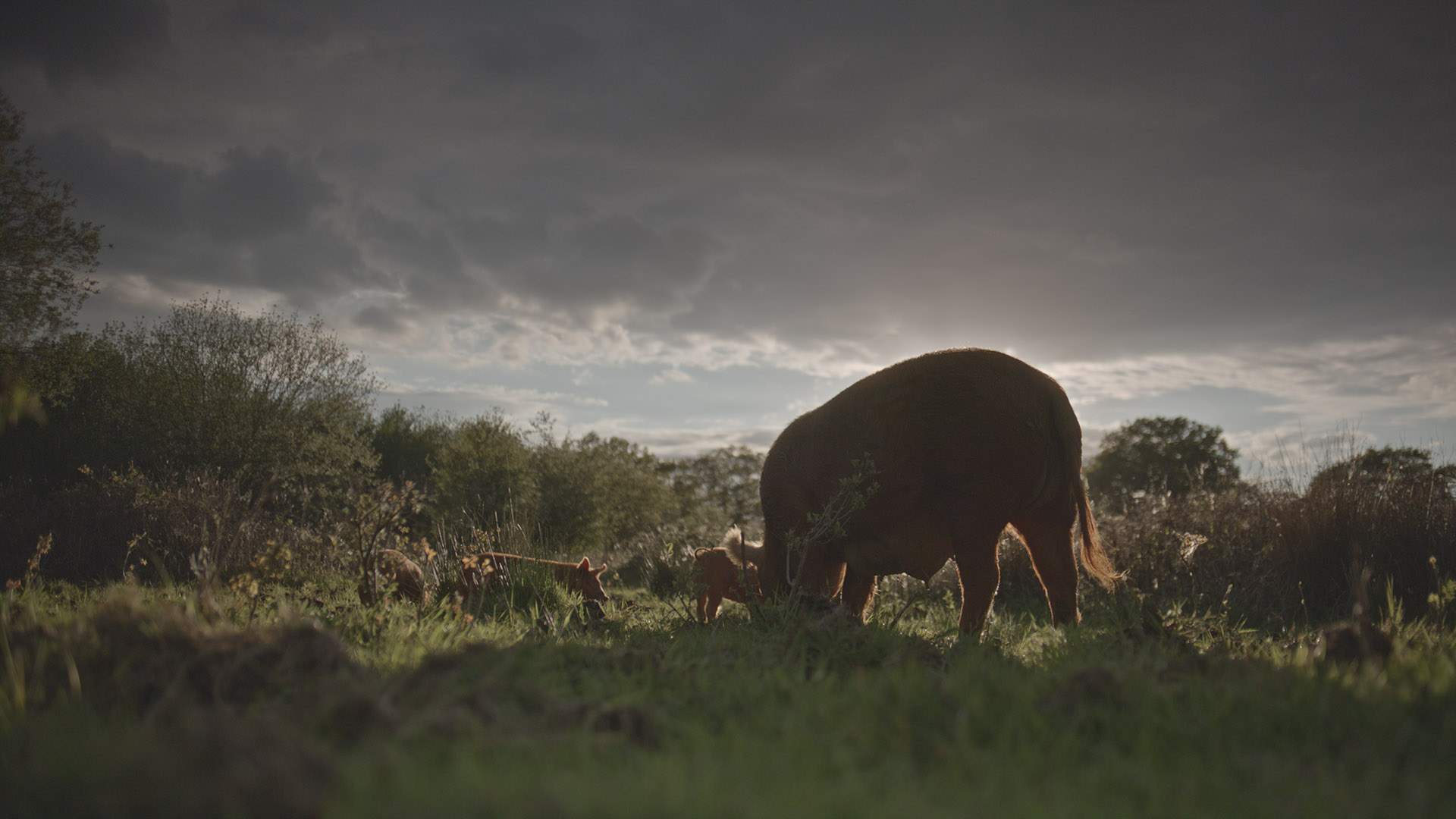Embracing the Power of Standing Back and Letting Nature Take Its Course on a 400-Year-Old British Estate: Isabella Tree Talks 'Wilding'
With her husband Charlie Burrell, this conservationist made a pivotal choice a quarter of a century ago: to stop farming and let nature reclaim their family property.
Wilding isn't about the butterfly effect; however, those insects do indeed flap their wings in this thoughtful documentary, and the world changes as a result. In 2009, a high-pressure weather system brought a mass migration of painted lady butterflies from north Africa to Europe, and to Britain, in their millions. One of their destinations: Knepp, the 400-year-old West Sussex estate that Isabella Tree and her husband Charlie Burrell call home, and that's been in the latter's family for generations. The 3500-acre property had a creeping thistle problem, threatening not only the land but the couple's way of managing it via rewilding, and also their reputations. Enter tens of thousands of painted ladies, which did the trick through no intervention by Tree and Burrell at all. The butterflies laid their eggs on the creeping thistle, then the hatched caterpillars ate away the leaves, with just the plant's shredded stems remaining.
At the turn of the 21st century, battling a £1.5-million debt on their farm, Tree and Burrell made a bold move: to stop toiling on the land and instead let nature reclaim the Knepp grounds whoever it saw fit. Refraining from acting and leaving the earth to its wildlife — plants and animals alike — shouldn't be such a radical idea, but it is now and definitely was then. Wilding works through how the pair's "don't just do something, stand there" philosophy has paid off well beyond their wildest dreams or most-ambitious expectations. The film, Tree's book that it's based on and the rewilding project at Knepp overall are each a testament to the power of nature to rebound; to endurance and perseverance; and to finding a way, including by stepping back and allowing the earth to function as it has long before humans walked upon it.
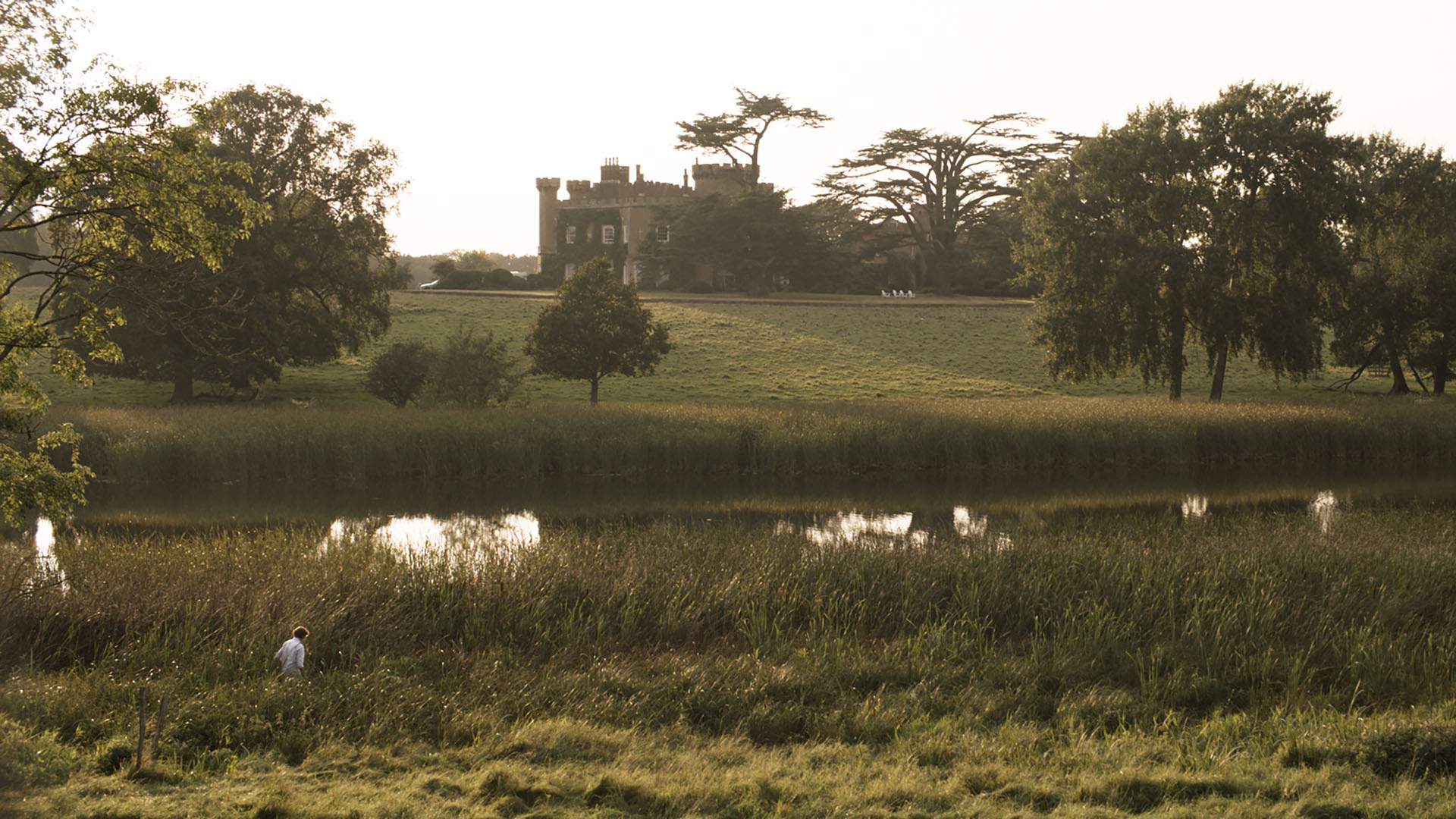
The painted lady butterflies and their role in helping to ensure that Tree and Burrell's plans for a new rewilded landscape at Knepp — an initiative that had already garnered backlash before the threat of creeping thistle — didn't crumble comprise just one of the success stories charted in this inspirational documentary. Storks breeding in Britain again for the first time in 600 years, aiding turtle dove conservation efforts, bringing beavers back to the wild in Sussex after 400 years: they're among the others. A five-time Emmy-winner for National Geographic Explorer, Living with Bugs, Nature and The Serengeti Rules, director David Allen is responsible for chronicling Knepp's transformation here. His efforts have paid off, with the film becoming the highest-grossing UK documentary of 2024. "I can't watch it, seeing my huge face pontificating on the screen. It's very much outside my comfort zone," Tree tells Concrete Playground. "But they did a lovely job, particularly of the footage, I think — the wildlife footage."
Tree is Wilding's on-screen guide, as she references — but this is a documentary that devotes as many of its frames to roving through the outcome of her and Burrell's life-changing decision as possible. To venture backwards, it also weaves in recreations with actors (such as Call the Midwife's Rhiannon Neads as Tree), where nature again remains the main star. The movie was made in lockdown and, equally from that period, Tree has penned the ultimate companion piece for those who watch along and want to do the same on whatever patch of earth they have: The Book of Wilding: A Practical Guide to Rewilding, Big and Small. "We have this incredible mailbag from people who've come to Knepp, as you say, and they don't have thousands or hundreds of acres, but they're so motivated and excited to do something on their own. And so we have questions: 'can I rewild my garden, my window box, my churchyard, my orchard, the verges around my street?'. And of course you can," she tells us.
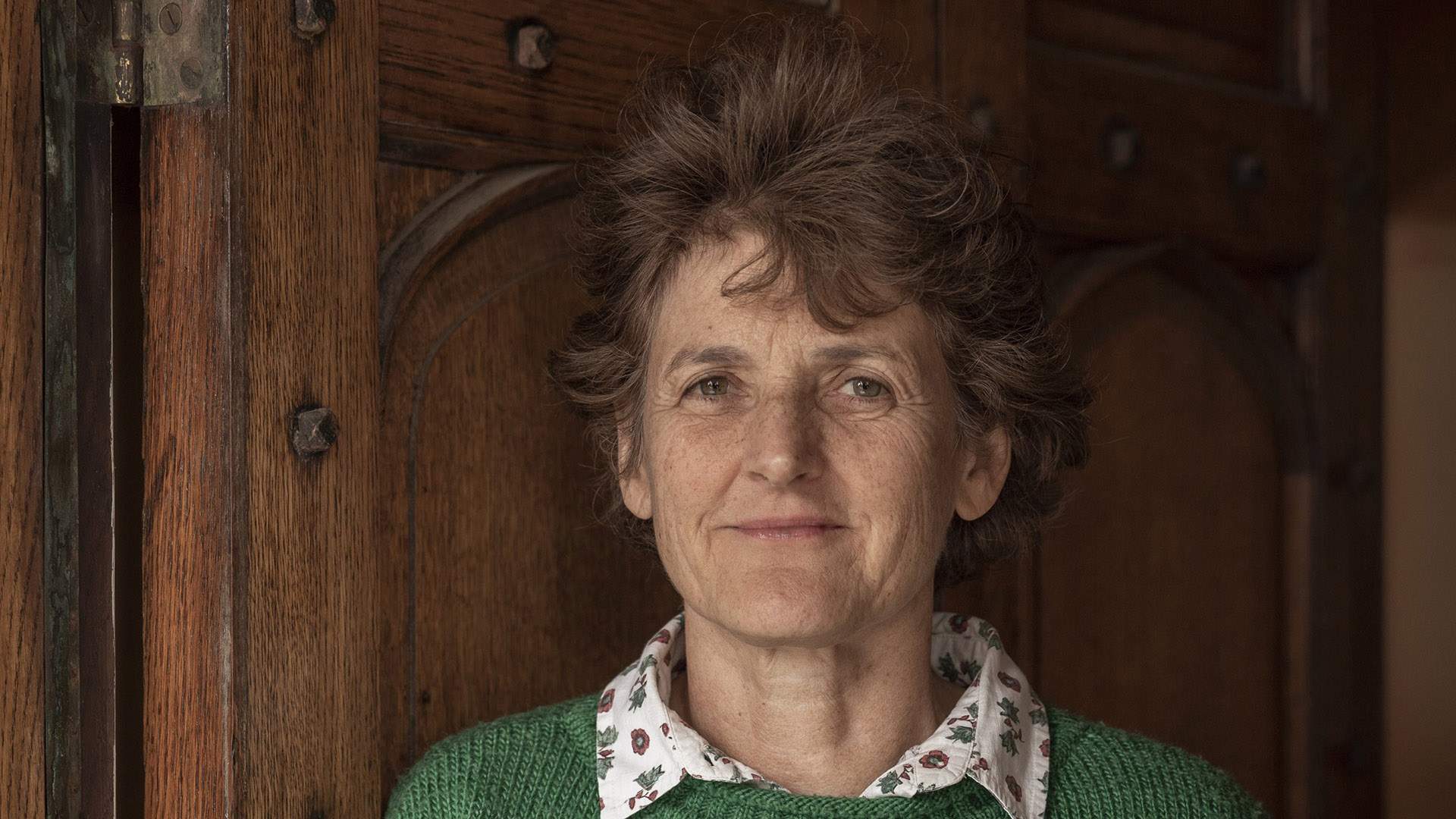
Olivier Hess
"This book really has all that advice. It's about how you can think differently with the rewilding mindset in whatever patch of earth you have influence over. So it's going into your garden and thinking like a beaver when you're building a pond. It's thinking about a grazing pony when you're when cutting your rose bushes — thinking in terms of a free-roaming animal. And it's not less work in your garden. It's probably just as much work, but it is incredibly freeing if you think about the natural processes in the wider landscape and how can you relate them to your smaller space. 'How can you allow dead wood and piles of leaves? How can you create a garden that has perhaps got drier parts to it?'. I mean, we've dumped 400 tonnes of crushed brick and concrete onto our lawn and created these mounds and bumps, because nothing in nature is flat."
"Just changing the topography of your garden can create all these little microclimates that benefit different plants. The variety, the mosaic of habitats, is what's important," Tree continues. "When you buy a bird box for your garden — lots of lovely nature-friendly gardeners will buy a bird box. Why are you buying a bird box? Shouldn't there be the habitat for them already in your garden? Because that habitat will also be providing insects and berries and the thing they want to eat, as well as protection from predators. So it's thinking about how you can use nature to provide for nature, for wildlife, in your garden. And get messy. Let's forget the leaf blower and the lawn mower, and use them as sparingly as possible."
"We can have wonderful spaces for ourselves, of course, in our gardens. We want to have dinner out there. We want our children to play ball games. But just think about nature, too, and how we could share that space."
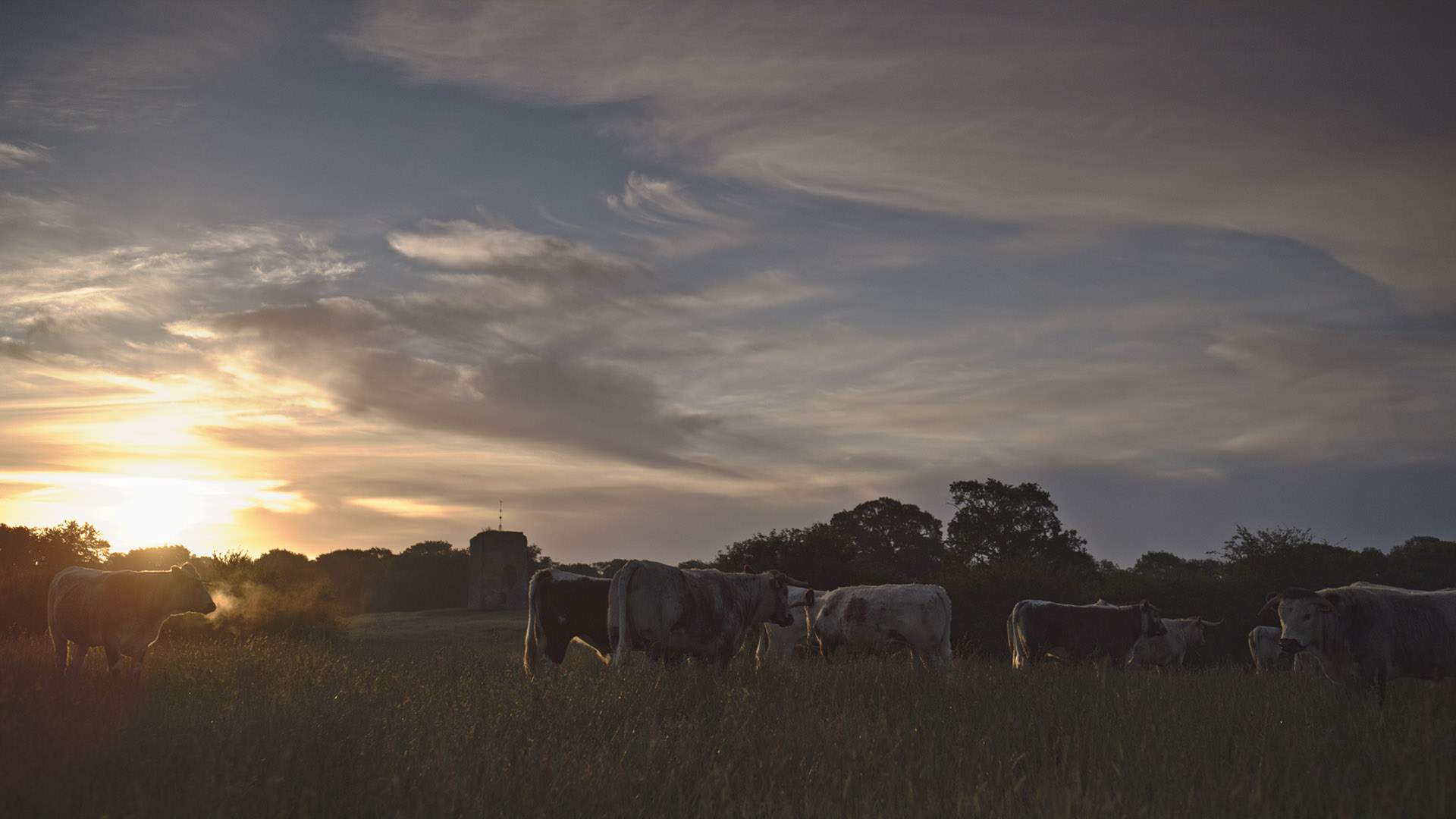
Viewing Wilding, which opened in Australian cinemas on Thursday, May 22, 2025, means marvelling at what Tree and Burrell have achieved, then often wanting to follow in their footsteps and take Tree's advice. It means seeing how the duo started by letting old English Longhorn cattle, Exmoor ponies and Tamworth pigs do what they're driven to — and being well-aware of what a risk they were taking by turning their backs on the estate's farming heritage — then witnessing how, yes, nature is healing.
Why is Tree and Burrell's approach considered so revolutionary? How much determination, fortitude and perseverance does it take to actively do nothing? How have some naysayers changed their minds about Knepp Wildland over the years? We discussed this terrain with Tree as well, alongside the pandemic's influence on reshaping how humans feel about nature and other topics, such as which of the project's triumphs means the most to her.

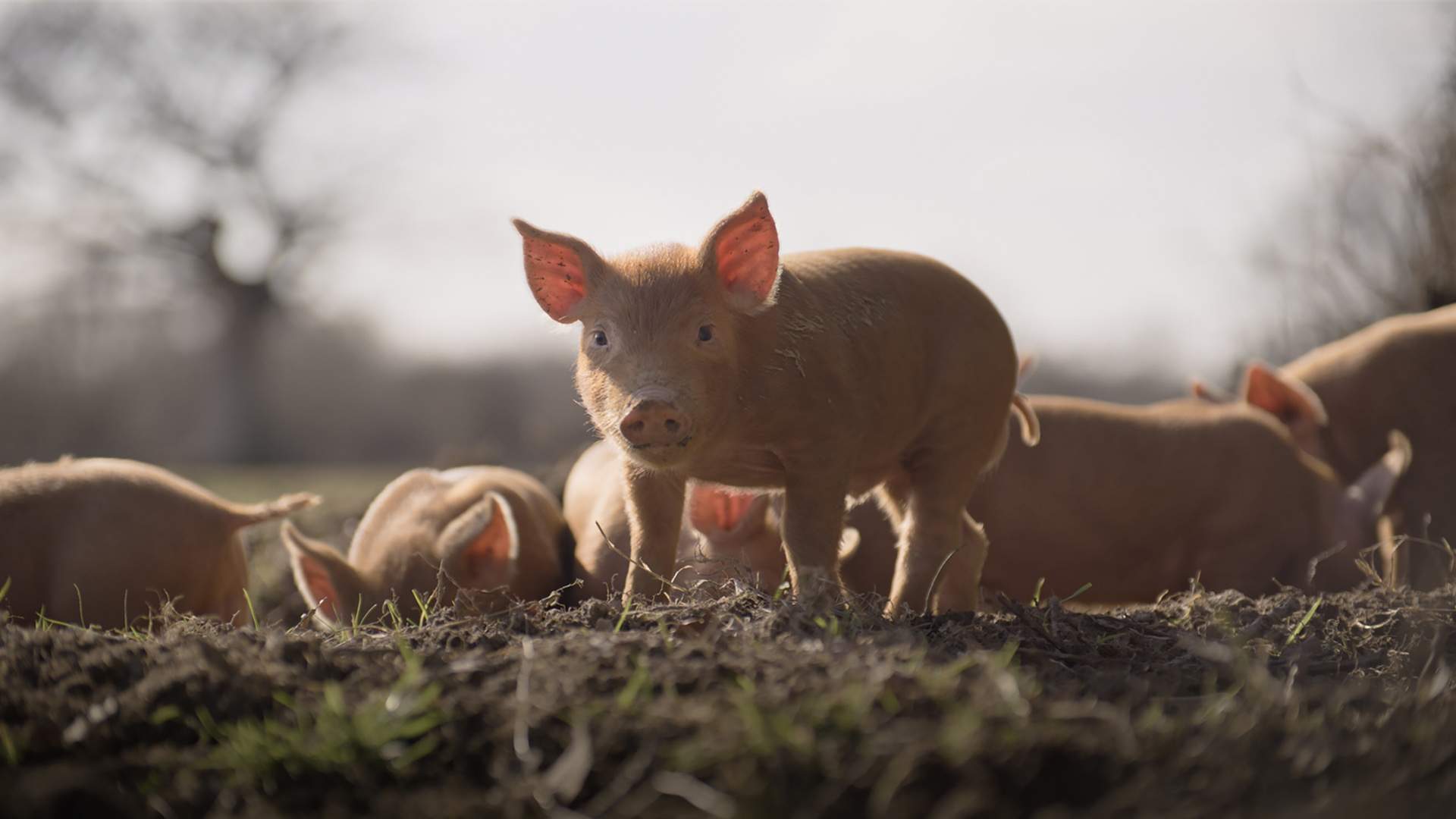
On Why Humanity Has Become So Resistant to the Idea of Not Doing Anything and Instead Letting Nature Take Its Course
"So that's such an interesting question, and I'm battling with it at the moment. I'm writing a book about the return of our white storks.
I think it goes back to Plato, actually. It goes back to the ancient Greeks, that moment when we began to divide ourselves as human beings from nature. We saw nature as something that needed to be controlled, to be won over — that our soul and our intellect, our brains, were separate from nature. We were separate from all other living things.
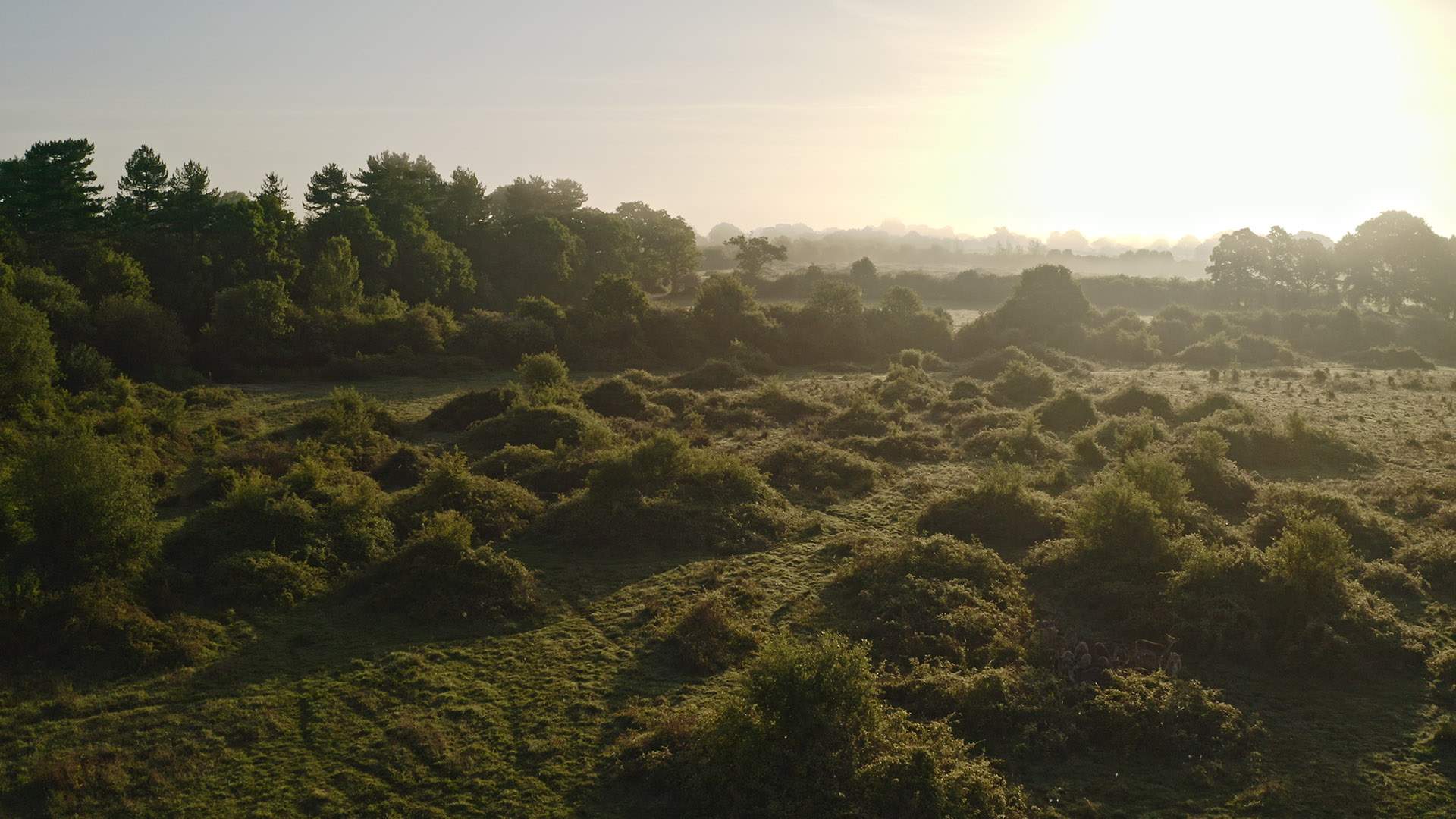
And when you look around the world at native peoples, even today, people who — communities, civilisations that have lived for thousands and thousands of years, successfully and sustainably, they never disassociate themselves from nature. Some cultures, there's no pronoun for the self because you are so much part of the living world.
And so I think it all began, the rot began then, with the ancient Greeks — and I'm a classicist, so it's taken me a very long time to say that.
But I think this mania with control and tidying up also was just exacerbated with science, and how we approach science as a completely different discipline. How we separate zoology from botany, as if plants and animals just don't coexist. It's the way we think in the western mind.
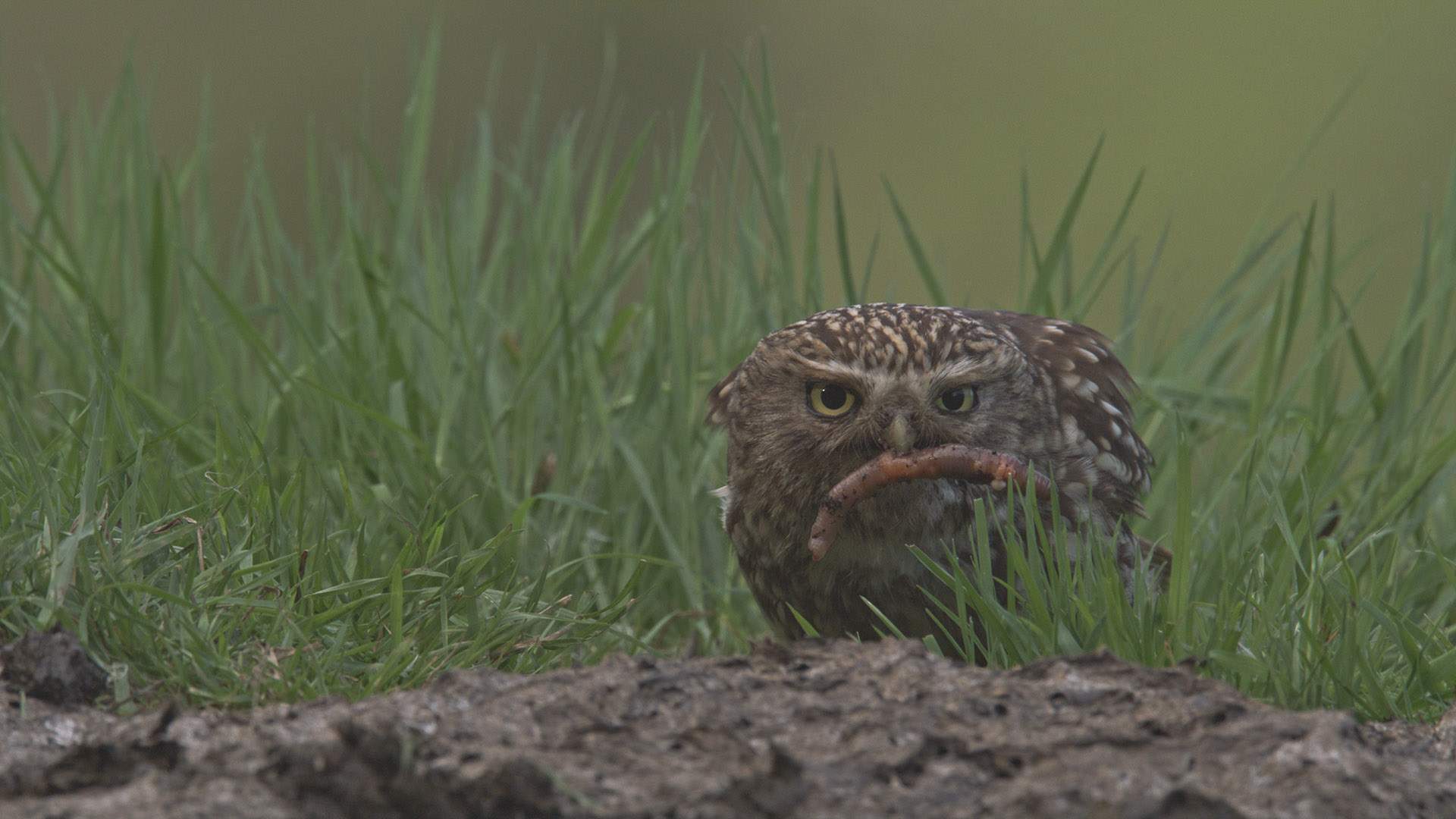
And then, of course, we have the industrial revolution, which gives us fantastic machines that men in particular, may I say, love to use — like chainsaws and mowers and anything with an engine that can just get rid of nature as quickly as possible.
So we became fantastically obsessive about tidying up, and that has been nature's downfall, I think — is our disassociation and our mania with tidiness. As well as agriculture, but I'm just thinking about our own personal space."

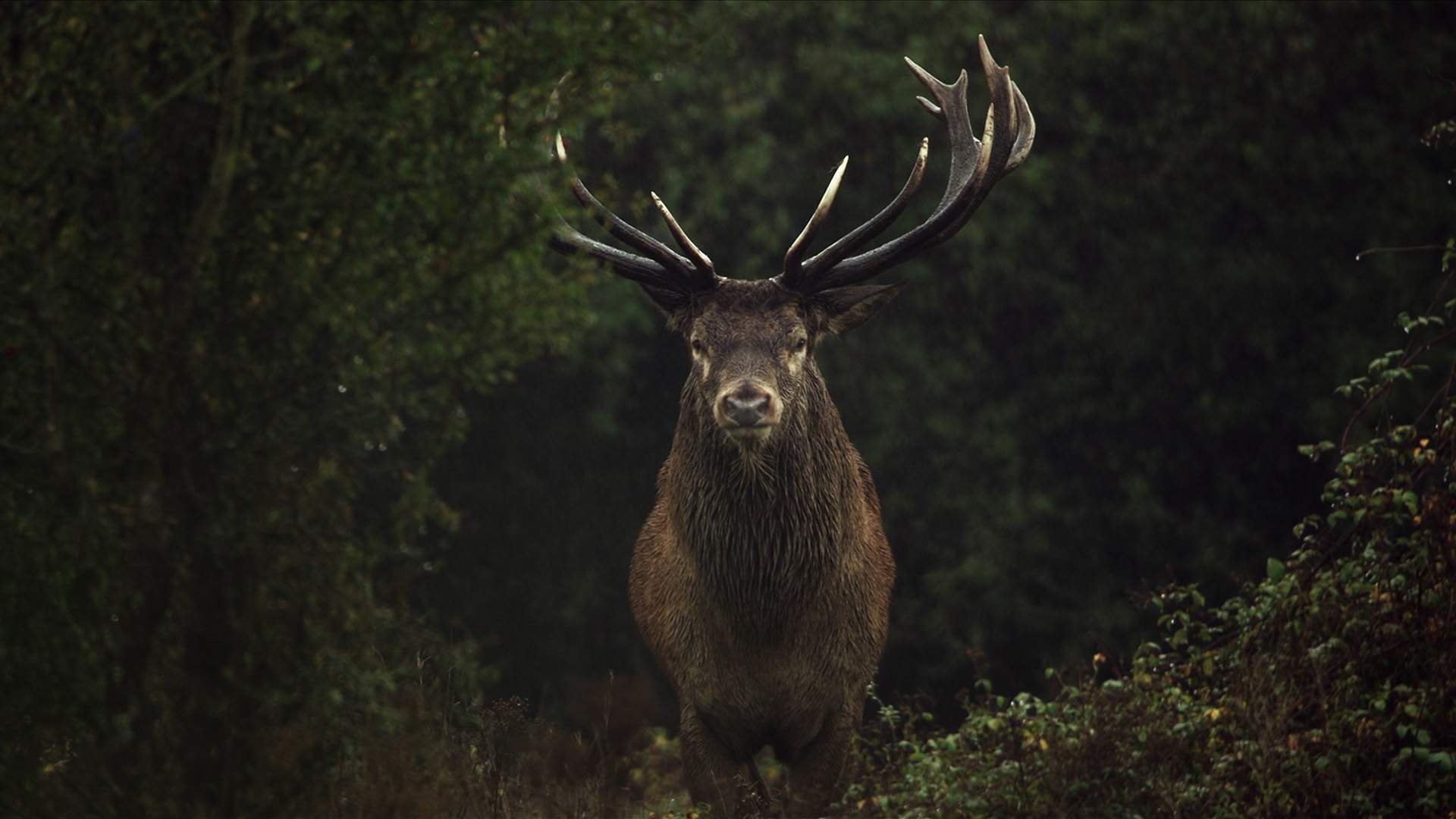
On the Determination, Fortitude, Ambition and Perseverance That It Takes to Actively Commit to Doing Nothing
"It's very difficult because it's a shift in mindset, I think, and we've got so many cultural prejudices about what we consider to be responsible or even beautiful. We're often nostalgically tied to these very controlled landscapes because we grew up with them as we were children. We have them in picture books as that's what nature looks like. And so to let go of all that is very, very difficult.
And I think that's what we found here at Knepp, is that once we embarked on this experiment and it got very messy and very untidy very quickly, it was a challenge to us. I remember seeing a tree right in our sightline outside the windows that was dying — a huge oak tree that had just succumbed to the amount of chemicals that had been flowing down into that corner of the field over all the years that we've been intensively farming, and it just gave up the ghost. And we watched this tree die, and my husband was saying 'oh god, I know we've committed to not doing anything, but that is right in our sightline. Perhaps we could make an exception?'. And we decided we wouldn't.
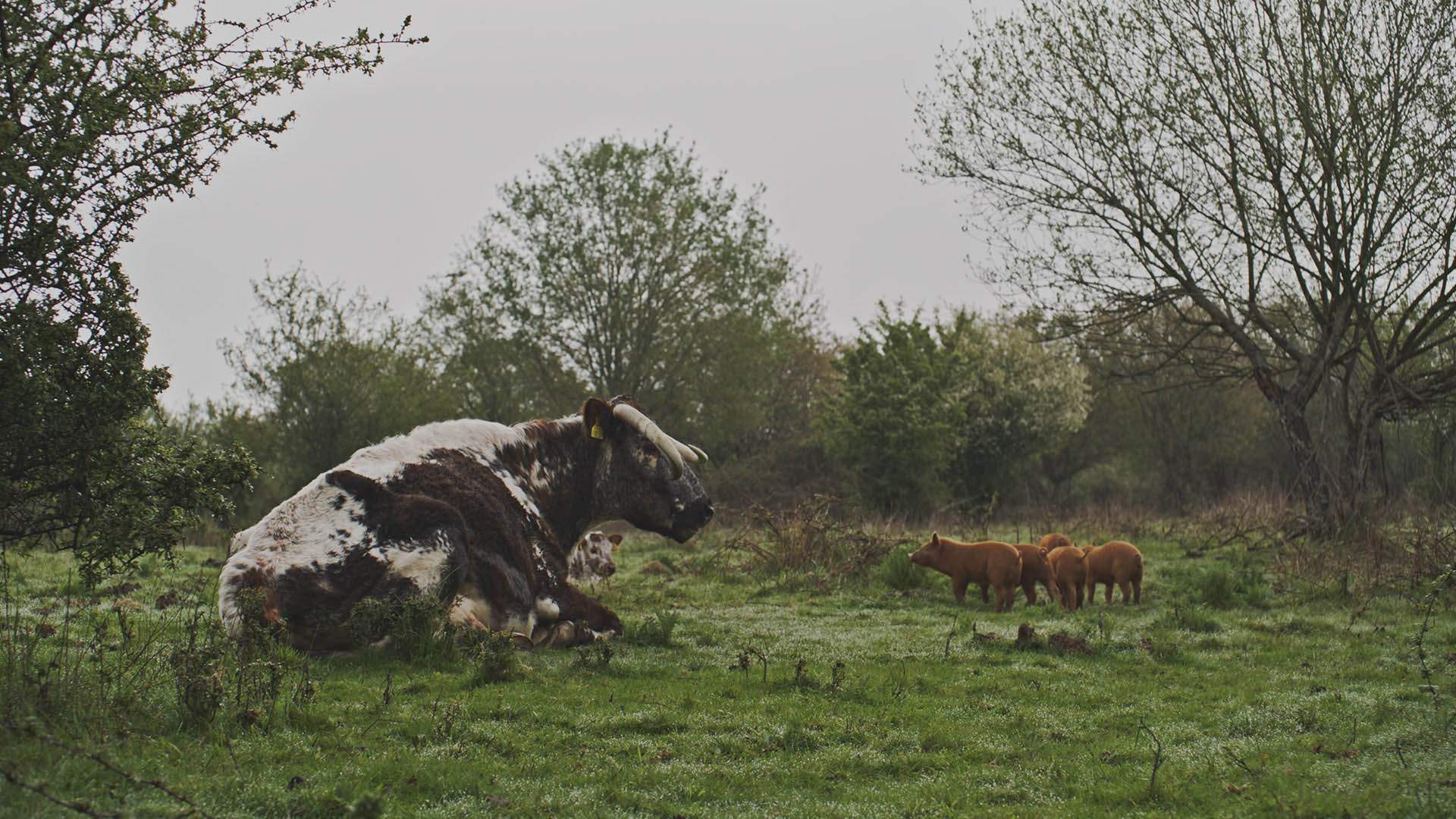
And that tree largely changed the way we thought, because living with it and watching it die slowly, and actually seeing the life that had attracted — the sparrowhawks that started nesting in it, the whole community of short-tailed voles that were living in its exposed roots, the fox that used to sit there waiting for the rabbits to come by, the perching places for herons — there was life and death. And suddenly we saw the point.
That is fantastic habitat. And we learned to love it as a thing of life and beauty. And that skeletal thing became something we thought of as beautiful. So I think it's about changing your aesthetic, and that is a very tricky thing to do.
But we had, in the early days, a letter from a woman who was furious and wrote us a kind of 'yours sincerely' disgusted tirade saying 'what you've done to your farmland is an abomination. You've turned something beautiful into a riot of ragwort and thistles. It's hideous. It's depressing'. And about five years ago, she wrote us another letter saying 'I walk at Knepp every week and I have to apologise for that letter I wrote to you back in the day. I now realise that Knepp is beautiful. It's just beautiful in a different way'."


On How Knepp Has Changed Perceptions — and Whether Past Naysayers Reassessing Their Thoughts Is Common
"Totally, because I think we're so unused to seeing this landscape. When people walk through it, it looks more like the African bush or even the Australian outback. It's scrubby, it's messy, there's animal tracks through it, and people think 'my god, this is just like Africa'. No, it's not. It's like Britain used to be. We just haven't got it anymore.
And so, you quite often take someone on safari and they go 'aaah'. Or you take them into our rewilded garden and they kind of brace themselves. And slowly, they begin to relax into it.
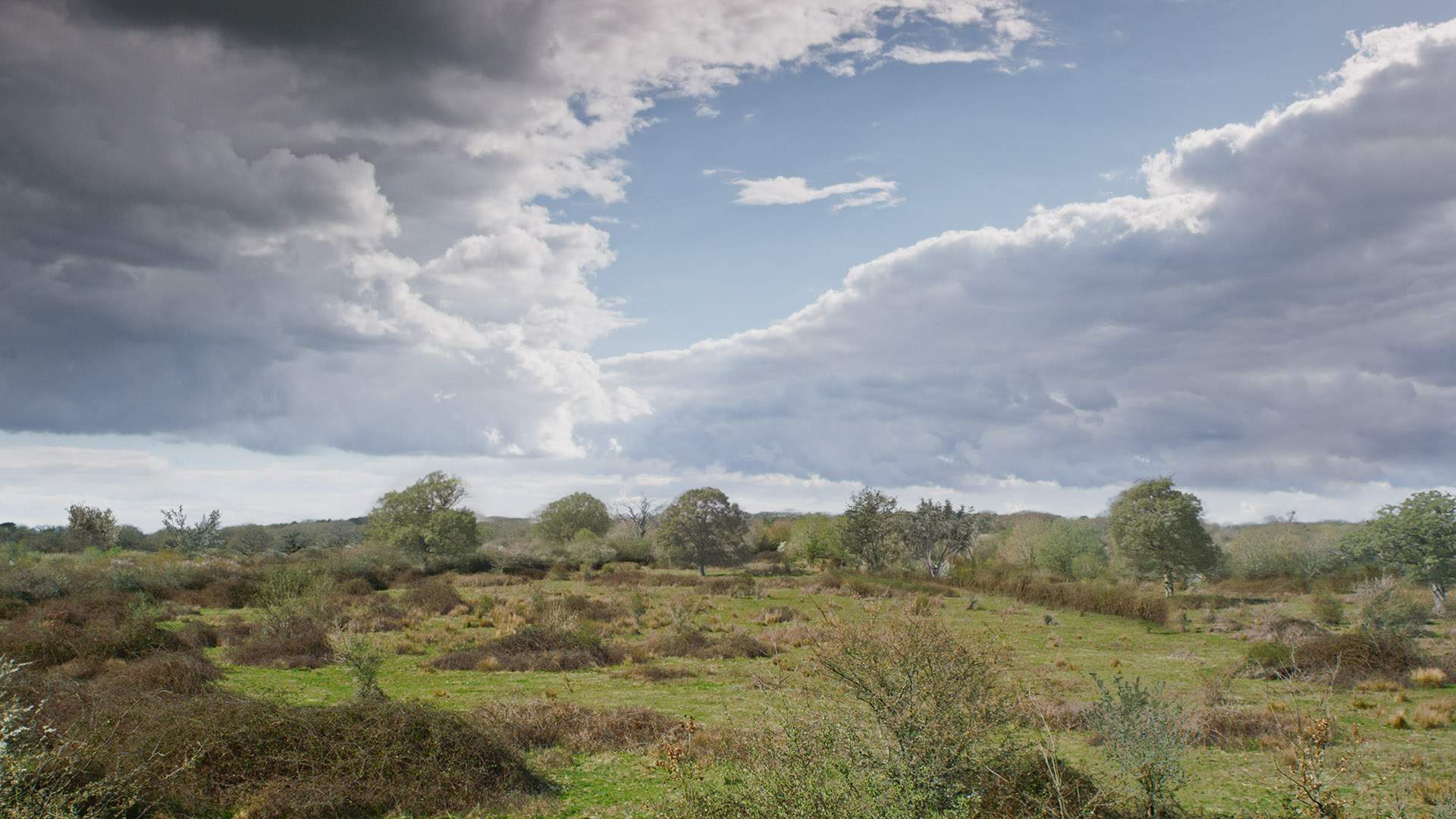
It's something that I think you have to feel through the heart. You can't just read about it or learn about it in a school classroom — you have to be out there in it and feel that birdsong vibrating in your lungs, literally echoing in your in your guts. And the surprise of turning a corner and finding a beaver or some piglets, then you suddenly have that 'aha!' moment.
So that's the power, I think, of having places like Knepp, is that people actually come here and that transformation in their heads begins from their hearts."

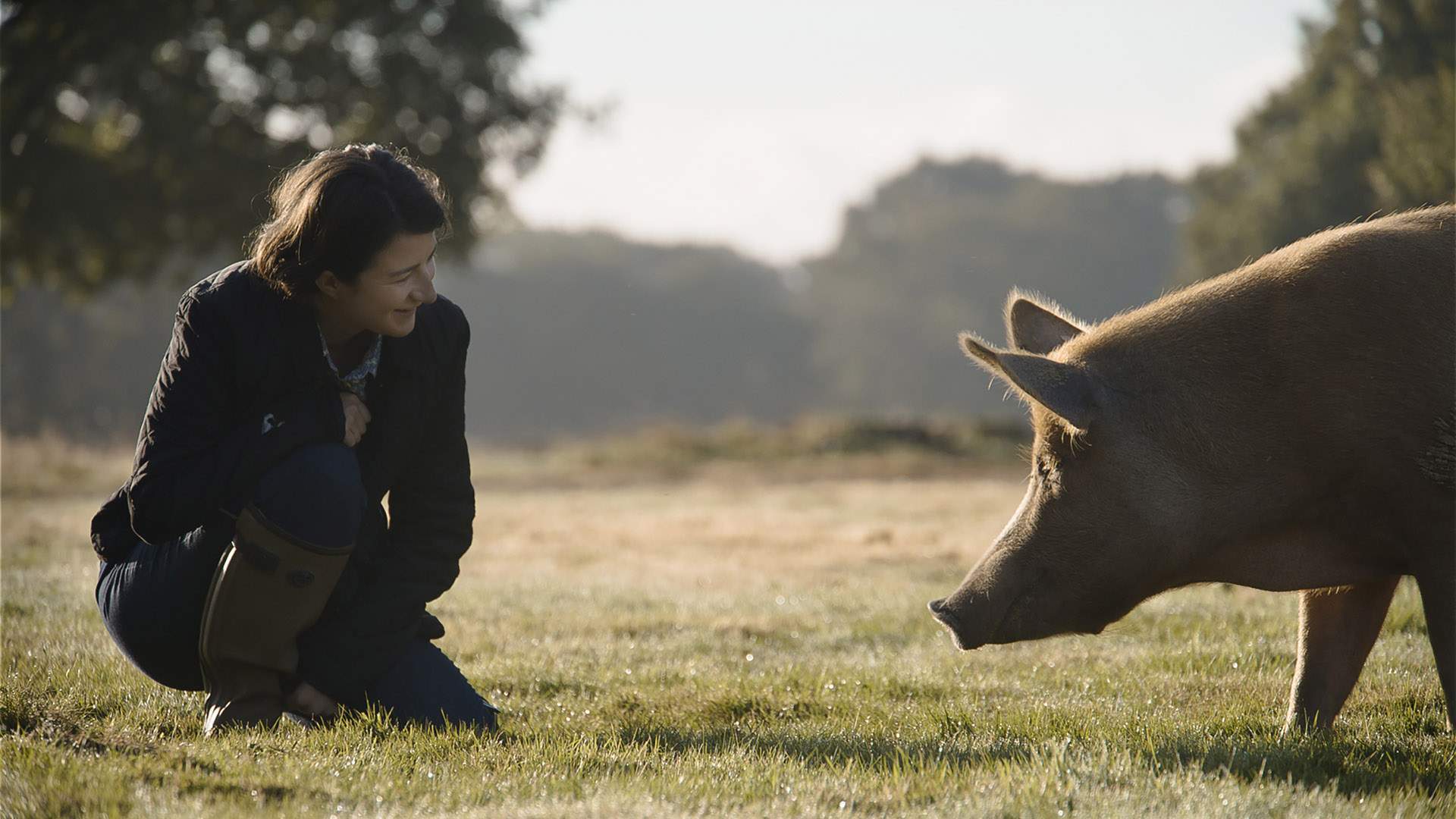
On If This Response — the Attention, the Books That Tree Has Written About Knepp and Now the UK's Highest-Grossing Documentary of 2024 — Was Ever Expected
"Absolutely no idea. We couldn't believe it. We did something because we were forced to do it financially, because the farm was essentially bankrupt. It was one-and-a-half million pounds in debt.
We were getting ourselves out of a terrible financial situation. We were doing the wrong thing on our land. And turning it over to nature appealed to us because we felt we could do it — and it would be a wonderful experiment to do. Both Charlie and I love nature. We travelled the ends of the earth to find wildlife, ironically, and never wondered why we didn't have it in our own backyard.
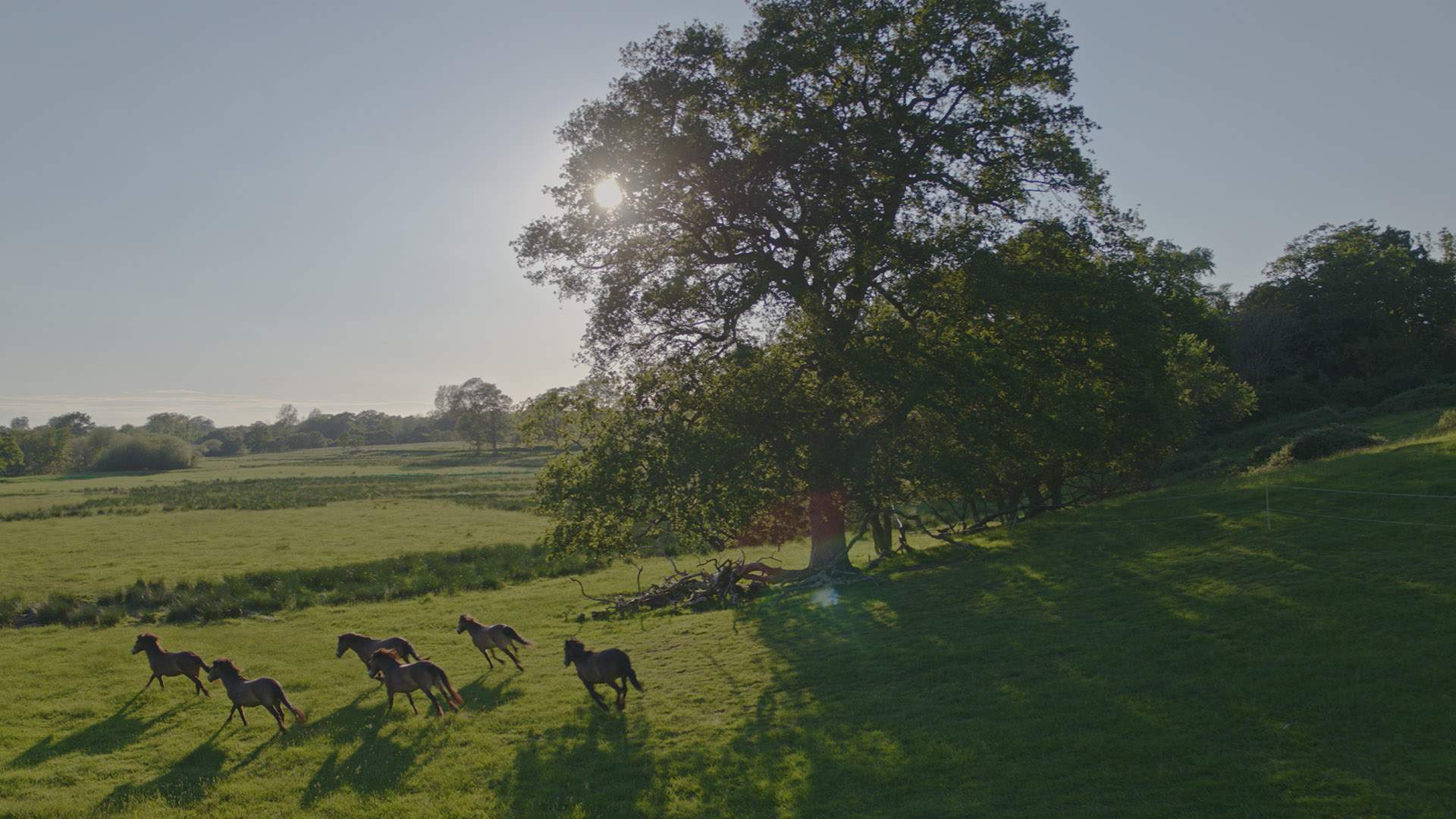
So doing something for nature felt incredibly positive. We had no idea that it would — we thought 'if we could increase biodiversity just a little, if we could get just a little wildlife back on our land that had been chemically soaked for decades and decades, wouldn't that be a wonderful thing?'. We never thought that we could have nightingales, turtle doves, purple emperor butterfly, some of the most endangered, critically endangered species in Britain, breeding here at Knepp, and increasing every year.
We never expected the abundance of life. It's interesting because it's shifted the shifting baseline in the opposite direction. Ecologists come here and they now are really ambitious, more ambitious, for the kind of life they should be having in their nature reserves — if they just got a bit wilder and perhaps used free-roaming animals, and used some of the ideas of rewilding in their own space. Because you simply can't believe you could fit any more life in here, and yet it still comes.
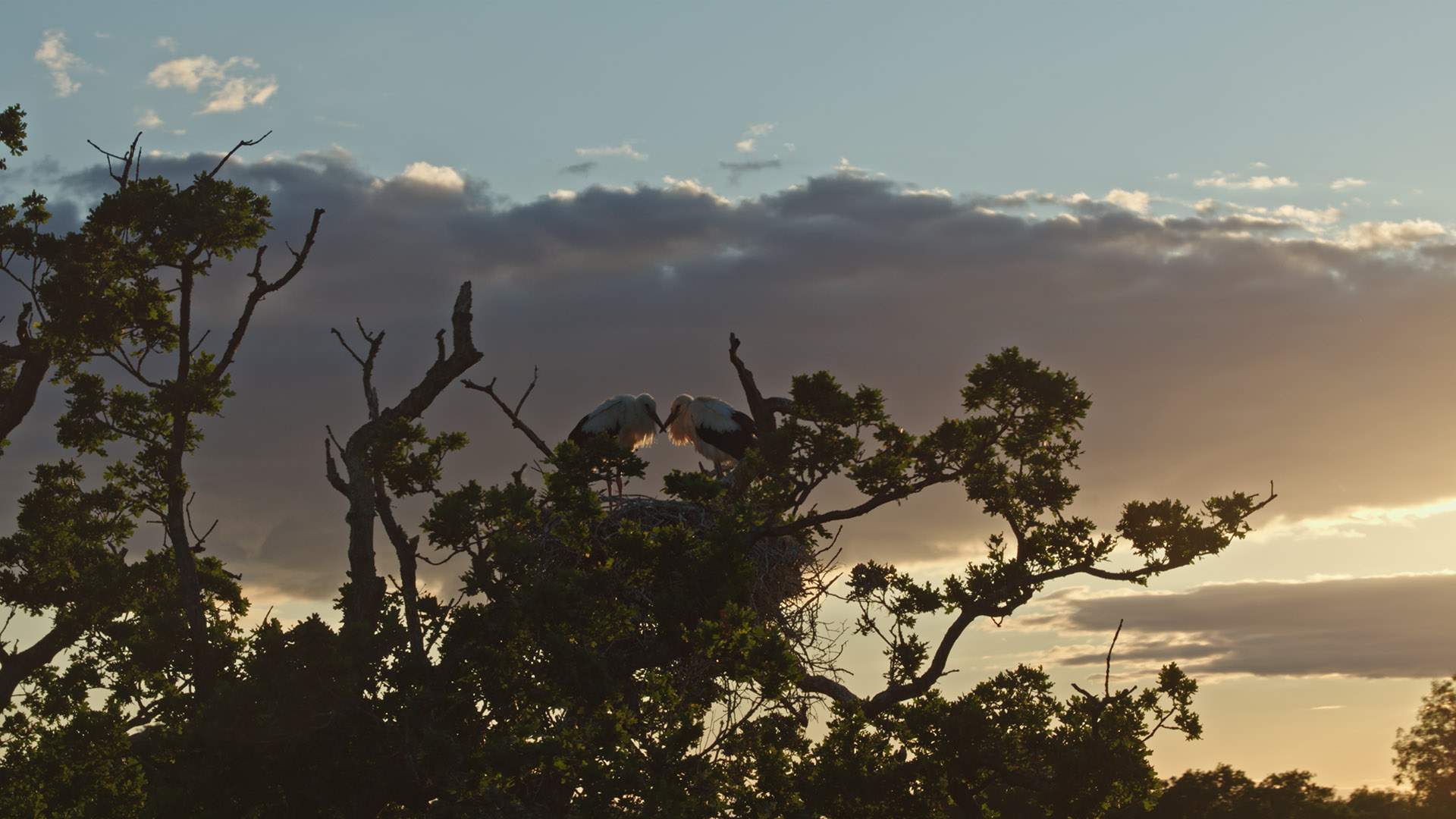
So I think we've been amazed. We've been certainly amazed by the attention, which we're not naturally sort of extrovert, table-thumping bandstanders. And so that's been a surprise.
But we do feel passionate about communicating this message of hope, because the joy that it's given us. And the thrill of seeing how it galvanises and excites other people, who then go off and do their own amazing thing — we just can't stop. So we've become those kind of people, I suppose."

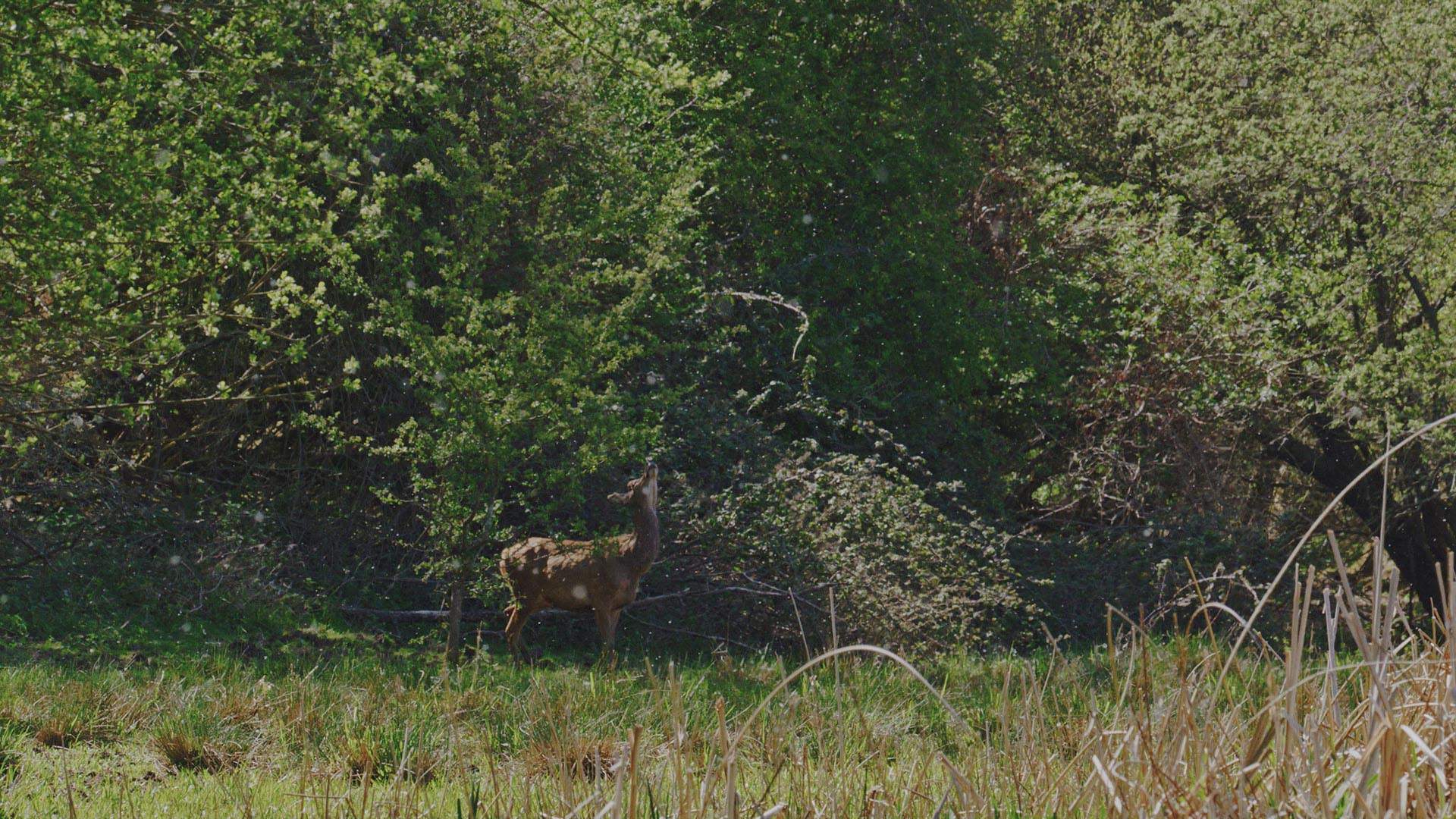
On Whether the Urge to Connect with Nature Post-Lockdown Gives Wilding and Tree's Experiences a Greater Sense of Timeliness Since — and If People Are Having a Stronger Response as a Result
"I think absolutely, definitely. I would even say it was a little bit before COVID, funnily enough. I think my book came out in the UK, Wilding, in 2018. And I always felt that if I'd written it six years earlier — I was busy with another book that was taking me far, far, far much longer than I thought, and I was longing to get to this book about Knepp, but I had to wait to finish the other one.
Luckily, because I waited an extra six years, not only did that mean that we even more results and even more proof — we've always been very careful about the science, so we had the proof here that we have this amazing biodiversity uplift.
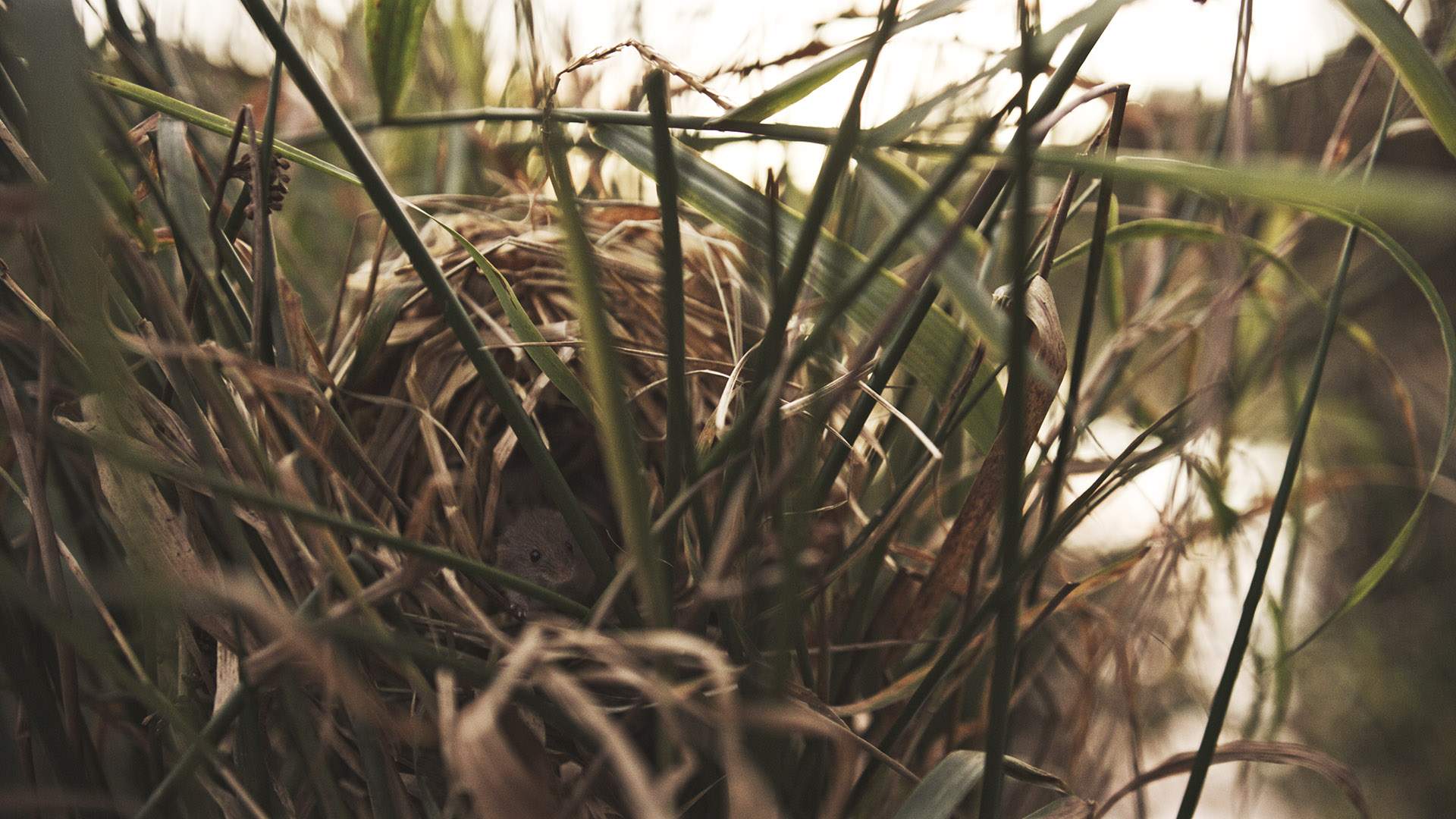
But it also, I think, chimed with stuff that was happening at the time. Greta Thunberg was suddenly bursting onto the scene. We had Extinction Rebellion in the UK. David Attenborough was finally coming out and saying 'this is a massive problem'. His films were getting more radical. We had the plastics problem suddenly hitting the headlines.
Suddenly it felt like the zeitgeist, that people were feeling eco-anxiety properly for the first time and not trusting governments to change, to take that worry seriously. And so I think that's why the book did well.
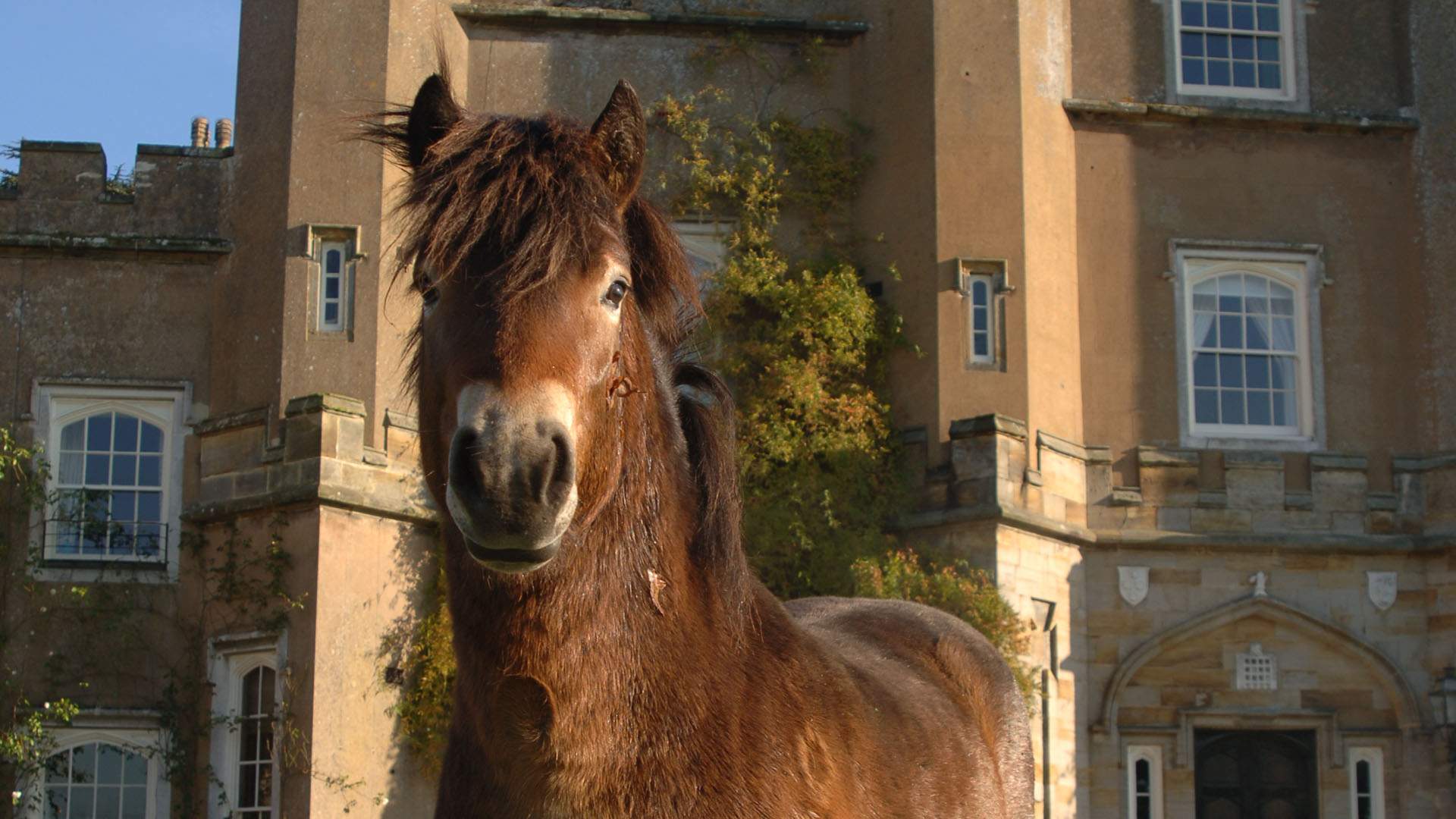
And then I think that the film was actually filmed during lockdown, and so I think those audiences were definitely feeling that need for nature in a totally different way. We know how being in nature, now we really appreciate — the first thing we did when lockdown was released was find a patch of nature anywhere. And not just a kind of billiard-table lawn in the middle of a city, we needed something heaving with life that was going to connect us to our living selves again.
And so I think definitely that appreciation has helped. Our busy daily lives take over, of course, and we forget. But I think that the reminder is: when we can, ourselves, do something. And if we can remind people that your garden, your window box, could be wilder. We can all rewild. And that is the most-powerful way not only to help the planet even in a tiny way — you can feel part of this movement — but it is also very reassuring and comforting to oneself to be able to plant a particular plant and attract a butterfly. It's magic."

On Whether Tree Had Any Specific Aims for Wilding as a Documentary
"I think we were really in the hands of Dave Allen, the director, who's wonderful and a friend. And so we trusted him. I have no idea how to make a film and what the arc needs to be, but he was amazing how closely he followed the book. I was really impressed and grateful for that.
All we did know — we had so many film companies approach us to make a film about Knepp, and none of them, to our minds, apart from Passion Pictures, took the nature transformation seriously. They wanted it to be about us or about I don't know what, but they weren't interested really in the science.
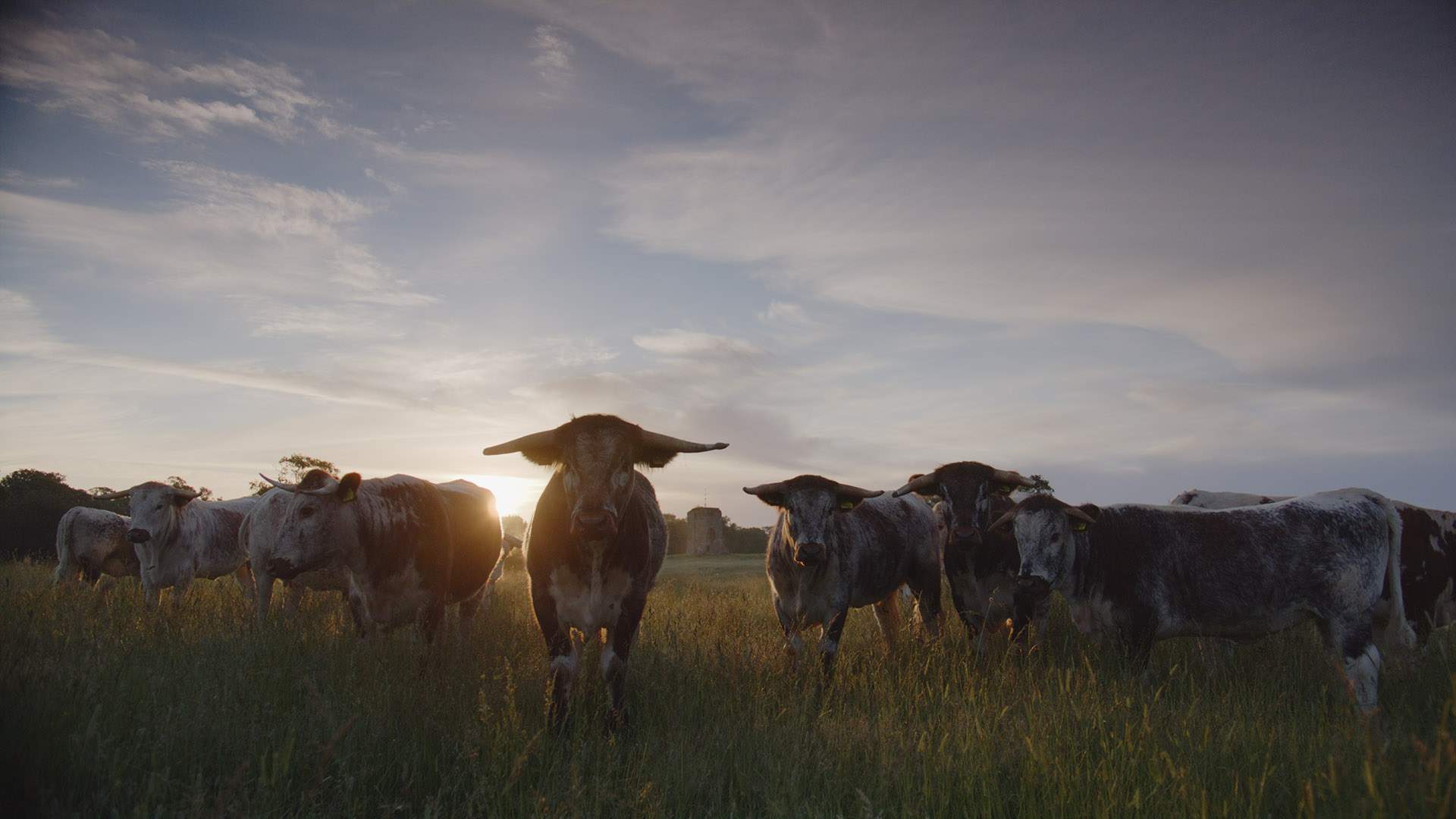
And what I so love about the film is how you see under the soil with the mycorrhizal fungi, that universe. You see the huge migration of painted lady butterflies. And bringing that to life, I think, is so wonderful because I think visuals can show a story in much shorter — it's shorthand, really, for what I was writing. And it's very, very powerful, I think.
And when you can actually see on the screen the transformation of our land from farmland to this heaving exuberance of life, that's, I think, where the power is in film. So I always hoped it could do that, but I was absolutely amazed by how brilliantly Dave and Passion Pictures were able to do it."

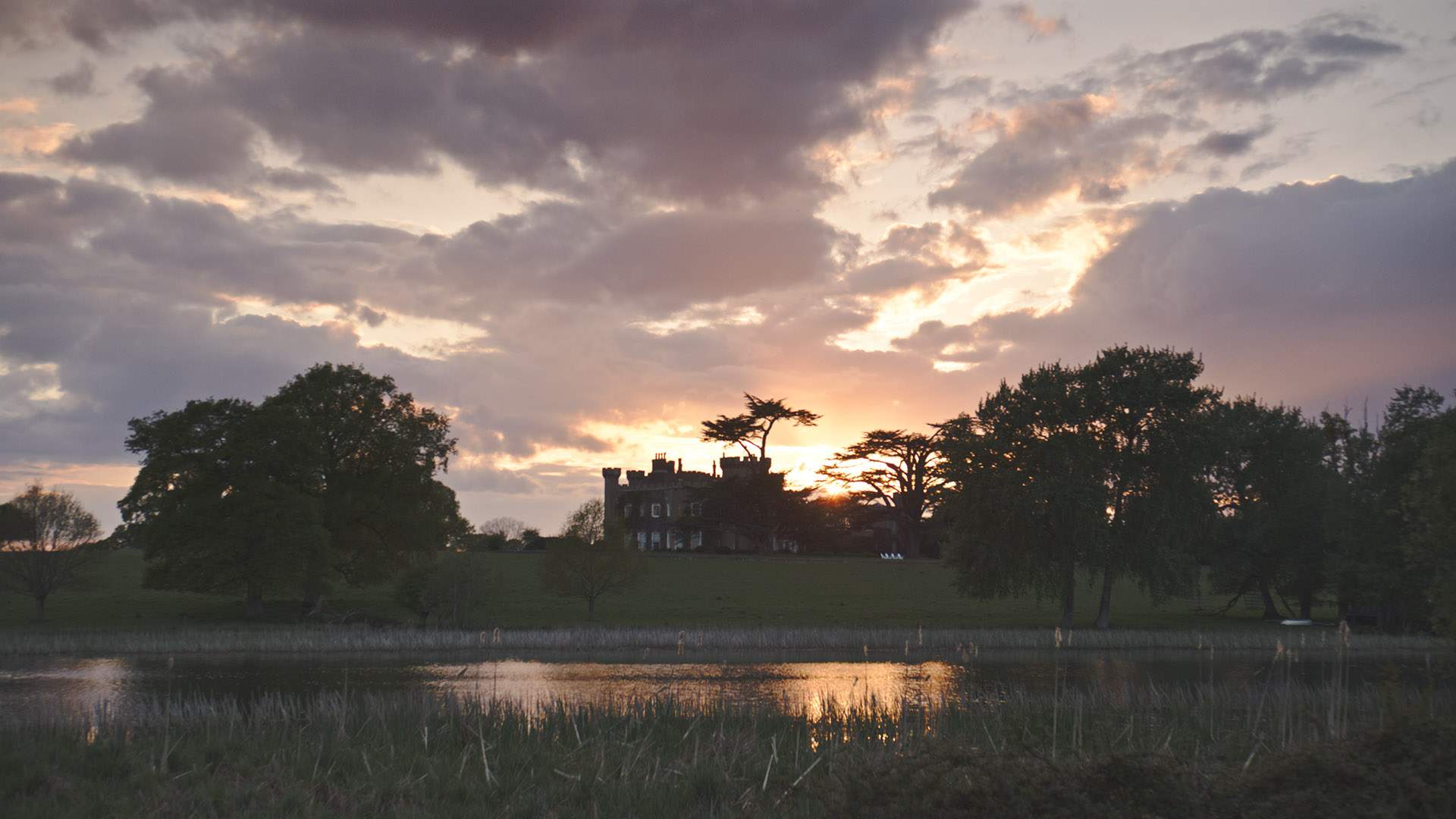
On the Highlights That Stand Out From Tree's Knepp Journey Over the Past Quarter Century
"I think always that the bird that I find most moving is the turtle dove, because when I was growing up in the 1960s, we had 250,000 turtle doves in Britain — and we've lost them largely because of intensive agriculture. And also dirty water, we have polluted water everywhere now, and they need clean water.
So now we have just a few thousand left in the southeast of England, and they are predicted to go extinct in the next decade or so by the Royal Society for Protection of Birds.
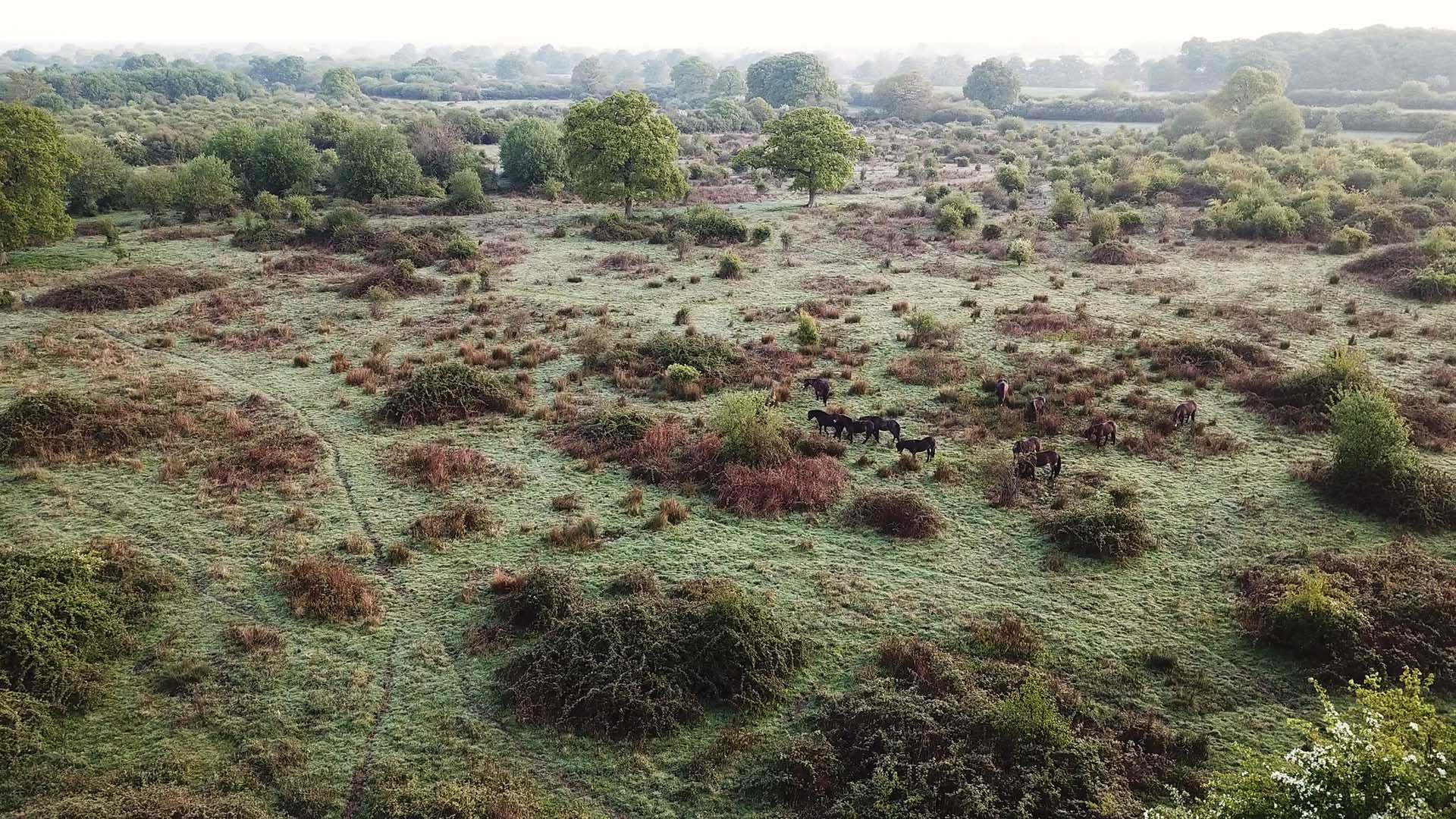
And so the fact that we have turtle doves here and you can still hear them — they are still increasing in numbers every year. We probably have about between 20 and 30 singing males every year. And on a lovely summer's evening, like tonight when I go out for a walk, if I'm lucky I will hear that gentle 'turr turr' that Shakespeare listened to and wrote about, that Chaucer wrote about.
And it's a bittersweet sound, because it's such a melancholic sound and it's so soothing at the same time, and reassuring, and I don't know if we've done enough quick enough to turn around the fortunes of the turtle dove. Knepp might be the last place where you ever hear it in Britain.
But, we have extended its stay and I'm forever grateful that my children have heard a turtle dove."

Wilding released in Australian cinemas on Thursday, May 22, 2025.

